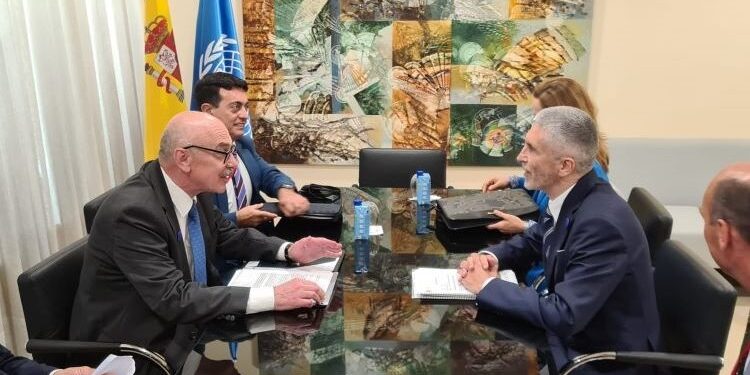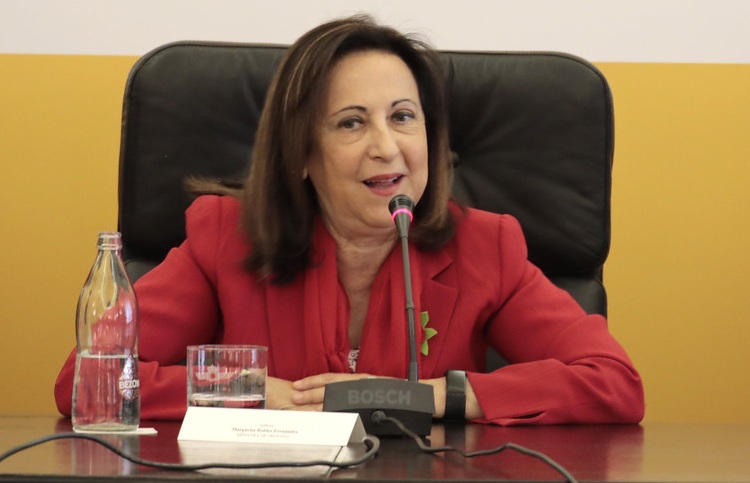The Diplomat
The Council of Ministers approved last Tuesday the referral to the Parliament of the agreement between Spain and the United Nations for the establishment of a Program Office of the United Nations Counter-Terrorism Office (UNOCT) in Madrid, while authorizing the expression of Spain’s consent to be bound by the agreement.
The idea of establishing an UNOCT regional program office in Spain emerged during the Coordination Committee of the Global Counterterrorism Forum held in Malaga in March 2019 and was addressed by the Minister of Interior, Fernando Grande-Marlaska, and the UNOCT Deputy Secretary General, Vladimir Voronkov, on the margins of the High Level International Conference on Human Rights, Civil Society and Counter-Terrorism, organized last May by the UN and the Government of Spain in the same Andalusian city. The agreement for the implementation of the Office was signed last June 22 in New York, one day after the Council of Ministers approved its signature and provisional application at the proposal of the Ministries of the Interior and Foreign Affairs.
The UNOCT headquarters in Madrid, as detailed in the agreement, will be responsible for the management and implementation of programs and projects related to the prevention and fight against violent extremism, the protection of vulnerable targets, the promotion and protection of human rights in the fight against terrorism, support for victims of terrorism and bilateral and multilateral cooperation, among other matters. The agreement also establishes that Spain will provide a series of administrative and operational support services to the UN office, will place at its disposal the appropriate facilities and will provide it with the necessary public services for the performance of its work. According to the Government, “it is a question of opening an office with a Mediterranean and African focus, setting itself up as a center for the management of United Nations counter-terrorism projects for that geographical area”.
The United Nations Counter-Terrorism Office was established on June 15, 2017 by a decision of the United Nations General Assembly with the objective of assisting Member States in the implementation of the UN Global Counter-Terrorism Strategy. This office works closely with the subsidiary bodies of the Security Council mandated to enhance the capacity of member states to prevent and respond to terrorist acts.
The creation of the Office was the first major institutional reform undertaken by UN Secretary-General António Guterres following his report on the capacity of the United Nations to assist Member States in implementing the UN Global Counter-Terrorism Strategy. Since its inception it has been headed by Russian diplomat Vladimir Voronkov.
Precisely, the presence of Voronkov at the head of the organization led to a political row between the Government of Pedro Sánchez and the main opposition party, after, last September 21, the PP MP Pablo Hispán accused in Congress the Minister of Foreign Affairs, José Manuel Albares, of “whitewashing” Vladimir Putin’s regime with his decision to meet in New York with the Russian diplomat. Foreign Affairs immediately responded that Voronkov has “Russian nationality” but “does not represent Russia either at the UN or in any other way” and rejected, “without nuance, discrimination based on nationality, including Russian nationality”. The purpose of the Albares meeting was precisely the signing of the headquarters agreement for the opening of a delegation of the UN Counter-Terrorism Office.
Vladimir Voronkov was appointed deputy secretary general of the United Nations Counter-Terrorism Office in June 2017 after more than 30 years of experience in the foreign service of the Russian Federation. Prior to his appointment, he served as Ambassador Permanent Representative of Russia to international organizations based in Vienna.







